A group of partner organisations working in criminal justice across Europe is creating a training model aimed at improving the approach of probation officers and workers involved in the probation process. The ultimate goal is to promote the use of the restorative justice method, which focuses on repairing the harm caused by crime and involving individuals and community members rather than simply punishing offenders.
Recognising that punishment is frequently unsuccessful was one of the reasons why Restorative Justice gained popularity in the 1970s. This philosophy focuses on encouraging individuals who committed illicit crimes to acknowledge and repair the harm they have caused.
It aims to mend the damage caused by crime and involves individuals and community members, instead of worrying about whether the individuals who committed a crime “receive what they deserve”. In fact, Restorative Justice was created to strengthen the Western legal system while addressing some of its needs.
Restorative Justice strives to be a response to the lack of a holistic and humanising view of the justice system, felt by the parties involved in a crime. In this newer process, there is the use of more inclusive strategies that meet the needs of victims and, consequently, minimise their psychological troubles1,2.
The European Union Victims’ Rights Directive offers a straightforward definition of restorative justice:
‘Restorative Justice means any process whereby the victim and the offender are enabled, if they freely consent, to participate actively in the resolution of matters arising from the criminal offence through the help of an impartial third party (Article 2, para 1.d).’
Such a broad definition allows us to simply focus on the fact that a crime is a break of relationships, not merely of the law. Therefore, it should be dealt with by looking at the experiences and the practical reality of the people affected by it. With restorative justice, crime remains an affair to be dealt with by the individuals affected by it and not merely by criminal justice professionals3.
This underlines the need of exploring this method to better deal with offences and questions the way we look at criminal acts.
Europe underwent significant developments in the field of victims’ assistance, in the 1970s, specifically regarding the rights, support, and protection of victims of crime. At this time, as a result of not receiving the support they required from the court system, the number of victims in need of aid increased dramatically3, and an increasing number of victims began requesting Restorative Justice4.
Restorative Justice in Cases of Domestic Violence Offenses
Restorative Justice utilises “relationship amendment” to get the offender to change their conduct. Through counselling, dialogue, empathy, and focusing on reintegration into society, it seeks a beneficial outcome for the victim and the offender5.
Bringing together people who have a troubled past could cause controversy, but effective Restorative Justice procedures are only employed when all parties agree to the treatment and abide by the rules that are set forth5. Since not every instance of domestic abuse is the same, Restorative Justice also emphasises tailored care6.
In some countries, including Greece, one of the Probationet project partners, this approach is already in place. If the person who committed the crime accepts responsibility, abiding by certain regulations (i.e., move out of the house, not practice this offence again, among others), the aggressor and the victim can agree to resort to Restorative Justice.
The Probationet project
The Probationet project – a flexible, multidisciplinary, and transnational VET model for probation services and practitioners – aims to develop and deploy an innovative training model able to respond to the education and training needs of officers and workers involved in the probation process.
To achieve this, the project will develop an e-learning course focusing on Restorative Justice and Recidivism, webinar modules, a Continuous Professional Development (CPD) accredited training course, and a repository with additional resources that will ensure the training of probation practitioners.
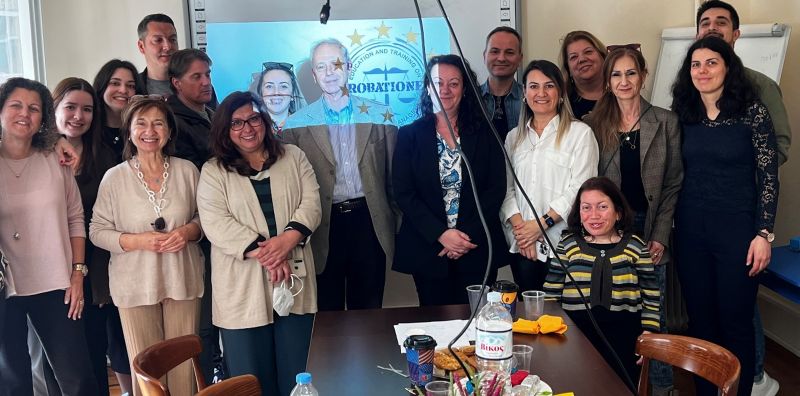
On the 27th, 28th, and 29th of April 2023, probation professionals and representatives of the partner organisations gathered in Athens (Greece), for a training session about the role of mediation in cases of juvenile offences and domestic violence offences. The event included a visit to the Department of Mediation in Criminal Cases, the biggest prosecution office in Greece, where domestic violence cases are mediated. Among the insights resulting from the visit, participants learned that the reports of these offences have risen in Greece during the covid-19 pandemic.
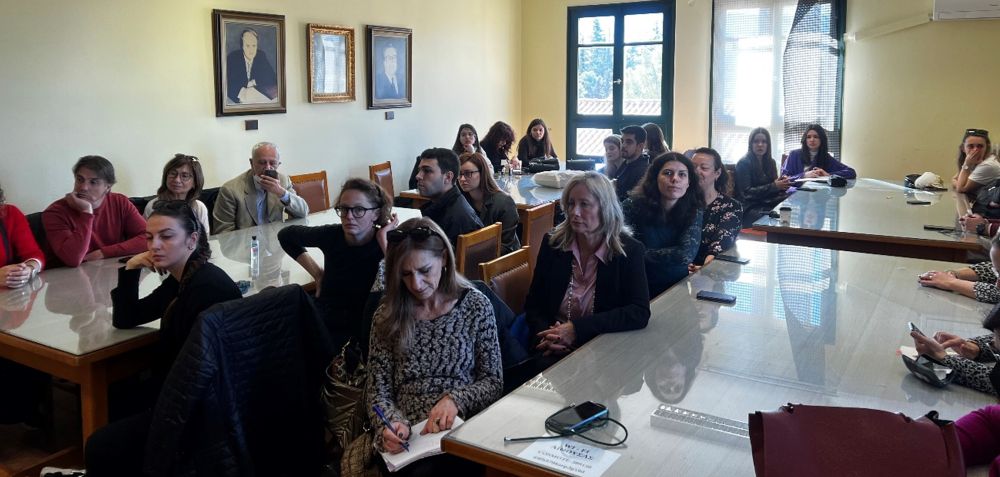
The PROBATIONET consortium is now preparing the course contents for the e-learning on Restorative Justice. The project is also organising Restorative Justice practices training events in Greece, Italy, Portugal, and Turkey with probation officers, staff from government departments, social workers, psychologists/mediators, and prison staff.
References
1 Wemmers, J.-A., & Cyr, K. (2005). Can mediation be therapeutic for crime victims? An evaluation of victims’ experiences in mediation with young offenders. Canadian Journal of Criminology and Criminal Justice, 47(3), 527–544. http://dx.doi.org/10. 3138/cjccj.47.3.527
2 Zehr, H (2005). Changing lenses. A new focus for crime and justice (3rd Ed.). Herald Press.
3 ERFJ (2021). MANUAL ON RESTORATIVE JUSTICE VALUES AND STANDARDS FOR PRACTICE.
4 ERFJ (2022). Restorative Justice and Gender-Based Violence. Online event.
5 Liebmann & Wootton (2010). Restorative Justice and domestic violence/abuse.
6 Sasson & Allen (2020). USING RESTORATIVE APPROACHES TO ADDRESS INTIMATE PARTNER VIOLENCE.
Learn more about this project

Probationet
A flexible, multidisciplinary and transnational VET model for the PROBATION services and practitioners
The Probationet project is led by the Panteion University of Social and Political Sciences (Greece), and partnered by IPS_Innovative Prison Systems (Portugal), University of Tuscia (Italy), CRSL (Centro Ricerche e Studi dei Laghi) (Italy), the General Directorate Execution of Sentences (Bulgaria), the Directorate-General for Reintegration and Prison Services (Portugal), EPANODOS – The Greek Centre for the Social Reintegration of Ex-offenders (Greece) and the Ministry of Justice – Ankara Probation Directorate (Turkey).
To learn more about this project visit www.probationet.eu
Related projects
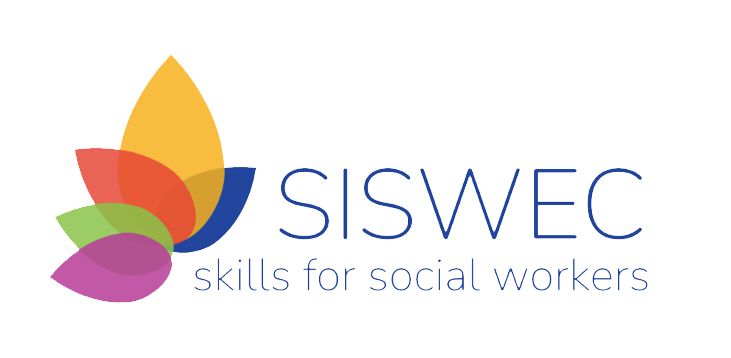
SISWEC
Strengthening the skills of social workers in a Europe in crisis

PROMOTE
Promoting Integrated Professional Development for Prison Practitioners in Vocational Excellence for Offender Reintegration

PO21
European Prison Officers for the 21st Century
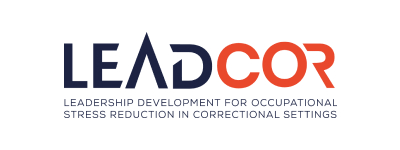
LEADCOR
Leadership development for occupational stress reduction in correctional settings

Itinerariul Dialog
Social dialogue for better prisons
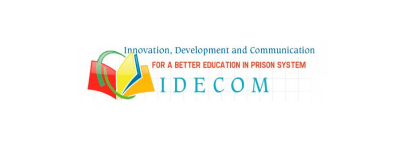
IDECOM
Innovation, Development and Communication for a better Education in Prison Systems

ECOPRIS
Ecological Economics in Prison Work Administration

DIGITWG
DIGICOR Digital Transition Working Group

CCJ4C
European Career Counselling Guidelines for Staff Working in Criminal Correctional Justice System
Related news

Enhancing child-friendly juvenile correctional training across Europe: IPS presents key findings at CRS 2025
Read More »
Building pathways to crime prevention through Community Policing and Rehabilitative Justice
Read More »
Child-friendly justice in practice: An online training for professionals working with convicted children
Read More »


